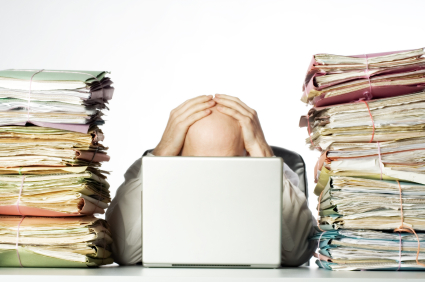How long do I need to store my records?

The Inland Revenue (now HMRC) gives guidelines on this, and says that for self assessment returns you need to keep your records for 5 full years after the latest date for filing the return. But for businesses you will need to keep them a bit longer: for sole traders or limited liability companies, you should keep the records of accounts, expenditure and receipts for at least 6 years, not including the year you are in. For VAT records also you will need to keep your records for a minimum of 6 years.
Many people find that the best way to organise this is to mark files and boxes which you put into storage with a “throw out date”, so that when that date arrives you don’t need to re-check and you can just dispose of these old files and papers.
Some people recommend keeping records for longer, because you may need them when making a claim for one of the longer-tail tax reliefs. For example for capital allowances, rollover relief or capital gains taxes you will often need records going back significantly further than 6 years. In this case, though, it is not minor items such as train tickets and petrol receipts you should keep, but substantial receipts for property and professional costs and any building works you have done.
Electronic records
With scanning technology, enabling you to put records onto CD or DVD, it is relatively easy to keep some records indefinitely, and it may be advisable to do so. One advantage of using electronic storage for keeping your information is that it is searchable and in practice it’s often easier to find individual records this way than by hunting though piles of papers for specific receipts. According to the HMRC’s online guidance on keeping records, you don’t have to keep the original receipts if you use a microfilm or optical imaging system.
Many offices are moving towards a paperless system and documents are often received by email, so a good electronic archive can save the need for scanning documents. In these cases, however, most people still seem to keep the paper copies and eventually need to shred these. In practice, one advantage of only throwing out documents after 7 years or more is that one may take the view that they then don’t need shredding.
Guarantees, insurance and security
Apart from discussions with the tax authorities, there are other good reasons to keep records for several years – for example, if you have had building work done and a fault develops you will want to be able to check exactly when the work was done, by whom, what it cost and what guarantees were given, before you go back to your builder or architect.
This applies to appliances too, where even beyond the guarantee period, which is usually one year, you can still claim for an indefinite period if there are inherent faults, or if goods turn out to have been of “unmerchantable quality”.
Keeping insurance certificates is a good idea too, especially if you want to make a claim for something that might go back some years, such as subsidence on a building.
In principle there are some company and personal records which you might want to keep off-site, or keep a copy off-site. For a business with one location, which must be the vast majority of UK businesses, self storage can be useful in providing that extra secure space away from the office.
2 Responses to “How long do I need to store my records?”
Leave a Reply
Subscribe to This Blog
Get new blog posts sent to you by subscribing to RSS updates or to email updates.







Interesting, but I think anyone these days can benefit from a microfilm scanner if they have a ton of microfilm and are aiming to get it converted. There’s also companies out there that offer the service too if you can’t manage a reader or can not validate getting one for the quantity of microfilm that you really have.
Theres some really useful retention guides for different industry sectors on our website http://www.documentstorage.co.uk, if we can be of any assistance our staff would be pleased to hear from you.